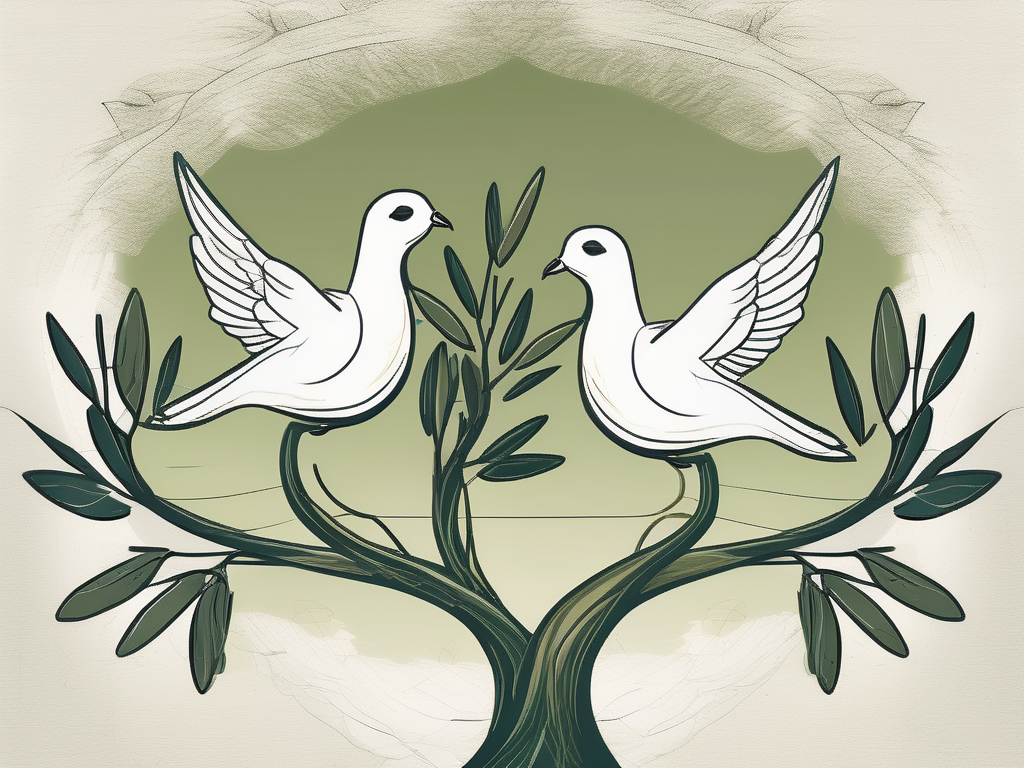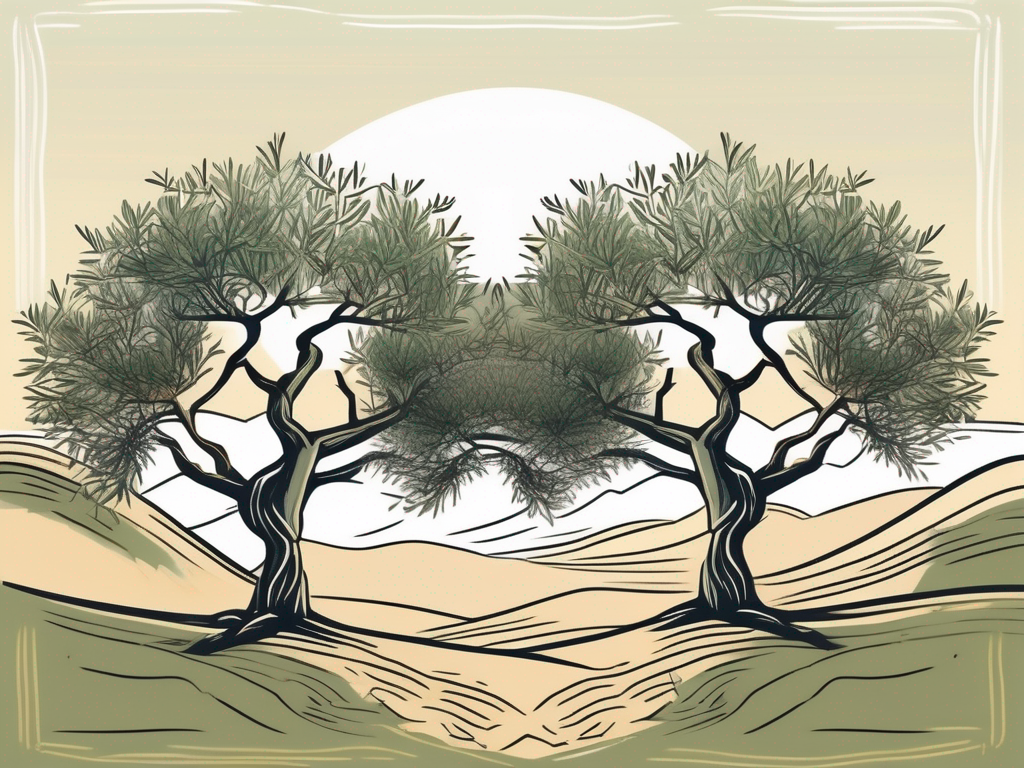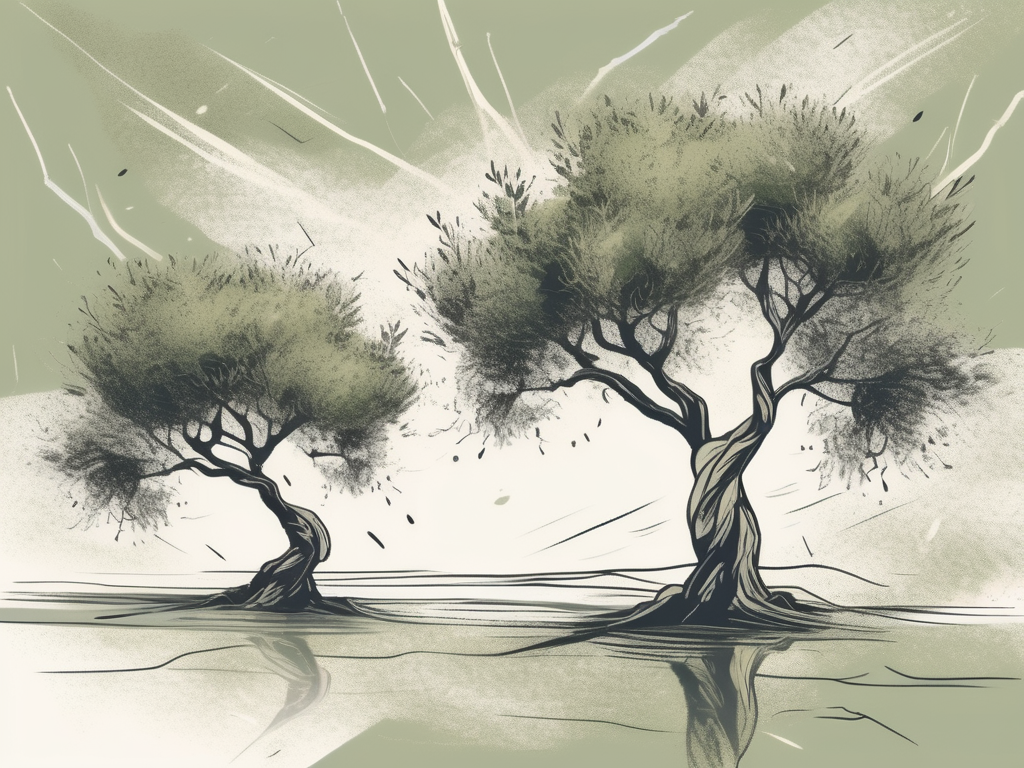In Hindu mythology, there are numerous gods and goddesses who play important roles in shaping the universe and the human experience. One such deity is Mitra, the god of friendship and harmony. Understanding the significance of Mitra requires exploring both his historical context and his role in ancient texts.
Understanding the Role of Mitra in Hindu Mythology
Hindu mythology is rich with stories and legends that provide insights into the gods and goddesses worshipped by millions of people. Mitra is no exception. In Hindu mythology, Mitra is known as the god of friendship and harmony. He embodies the virtues of trust, companionship, and unity, making him an integral part of the Hindu pantheon.
But who is Mitra? Let’s delve deeper into the historical significance and symbolism associated with this revered deity.
The Historical Significance of Mitra
Historically, Mitra has been worshipped in ancient civilizations, including the Vedic period. The mention of Mitra can be traced back to the Rigveda, one of the oldest sacred texts of Hinduism. In fact, Mitra and Varuna, another prominent god in Hindu mythology, were often mentioned together as divine companions. This partnership symbolized the integration of friendship and cosmic order, reinforcing the importance of maintaining social relationships and upholding universal harmony.
During the Vedic period, Mitra was considered one of the Adityas, a group of solar deities associated with different aspects of life. As the god of friendship, Mitra was believed to foster amicable relationships among humans and even between humans and gods. His worship was accompanied by rituals and prayers seeking his blessings for harmonious interactions and the strengthening of bonds.
Mitra’s Symbolism in Ancient Texts
In ancient texts, Mitra is frequently associated with the Sun and is often referred to as “Mitra-Varuna.” This association reflects the god’s ability to illuminate the path of friendship and bring people together under his benevolent radiance. Mitra’s association with the Sun also signifies the warmth and life-giving energy that true friendship and harmonious relationships bring to our lives.
Furthermore, Mitra’s symbolism extends beyond friendship. He is also associated with contracts, agreements, and oaths. In ancient times, people would invoke Mitra’s name while entering into pacts, emphasizing the importance of trust and loyalty in maintaining healthy relationships.
According to Hindu mythology, Mitra is often depicted riding a chariot pulled by horses, symbolizing his ability to traverse the celestial realms and connect with different realms of existence. This imagery further emphasizes his role as a bridge-builder, fostering connections between individuals and communities.
As we explore the vast tapestry of Hindu mythology, it becomes evident that Mitra’s significance extends far beyond being the god of friendship and harmony. He represents the fundamental values that underpin human relationships and the importance of fostering unity and trust in our interactions with others. Through his divine presence, Mitra continues to inspire millions to embrace the virtues of friendship and strive for harmonious coexistence.
The Characteristics and Attributes of Mitra
Mitra embodies several characteristics and attributes that make him an ideal symbol of friendship and harmony. His teachings and associations inspire individuals to cultivate meaningful connections and strive for peaceful coexistence.
Mitra as the God of Friendship
As the god of friendship, Mitra represents the essence of genuine companionship. His presence in ancient mythology serves as a reminder of the importance of fostering strong bonds with others. Mitra’s teachings inspire trust, loyalty, and compassion among individuals, creating a sense of unity and support within communities.
Through his example, Mitra teaches us the value of standing by our friends, celebrating their successes, and offering a helping hand in times of need. He encourages us to prioritize the well-being of our companions, recognizing that true friendship requires both giving and receiving support.
Furthermore, Mitra’s role as the god of friendship extends beyond human relationships. He is also believed to forge connections between humans and the divine, acting as a mediator and facilitator of spiritual growth. In this way, Mitra’s influence reaches beyond the realm of mortal interactions, emphasizing the significance of harmonious connections on a cosmic level.
Mitra’s Association with Harmony and Peace
Harmony and peace are foundations for a prosperous and balanced society. Mitra’s association with these virtues encourages us to seek resolutions in conflicts, bridging divides and fostering understanding. His teachings remind us of the power of empathy and compassion in promoting peaceful coexistence.
Mitra’s influence on harmony extends to both inner and outer realms. Internally, he guides individuals towards finding balance within themselves, promoting self-reflection and introspection. By cultivating inner harmony, individuals are better equipped to contribute positively to their external environments.
Externally, Mitra’s teachings inspire individuals to work towards resolving conflicts and promoting understanding. His emphasis on diplomacy and mediation encourages individuals to seek peaceful resolutions rather than resorting to violence or aggression. Through his teachings, Mitra emphasizes the importance of maintaining harmonious relationships with both ourselves and others, fostering a sense of unity and cooperation.
In conclusion, Mitra’s characteristics and attributes as the god of friendship and harmony make him an influential figure in promoting meaningful connections and peaceful coexistence. His teachings serve as a reminder of the value of genuine companionship and the power of empathy in fostering unity and understanding within communities.
The Worship and Rituals of Mitra
Throughout history, people have worshipped Mitra through various traditions and rituals, seeking his blessings for friendship and harmonious relationships.
Mitra, the ancient Vedic deity, is revered as the embodiment of friendship, unity, and harmony. His worship has been an integral part of many cultures, with devotees engaging in a wide range of rituals and practices to honor and seek his divine blessings.
Traditional Practices in Mitra Worship
Worshippers often engage in rituals such as offering prayers, lighting incense, and performing acts of charity to honor Mitra. These acts of devotion serve as reminders of the divine qualities he embodies and the importance of fostering friendship and unity in our lives.
When offering prayers to Mitra, devotees often recite hymns and chants that extol his virtues. These sacred verses not only express reverence but also serve as a means to connect with the divine energy of Mitra, inviting his presence into their lives.
Lighting incense is another common practice in Mitra worship. The fragrant smoke rising from the incense sticks is believed to carry the prayers and wishes of the devotees to the heavens, where Mitra resides. It is a symbolic act of offering and a way to purify the surroundings, creating a sacred atmosphere conducive to spiritual reflection.
Acts of charity, such as feeding the needy or donating to charitable causes, are also considered essential in Mitra worship. By extending kindness and compassion to others, devotees emulate the benevolent nature of Mitra and reinforce the values of friendship and unity in society.
The Importance of Rituals in Honoring Mitra
By engaging in rituals dedicated to Mitra, devotees create a sacred space to reflect on the significance of friendship and harmony. Such practices provide an opportunity to cultivate gratitude for the relationships we have and inspire us to nurture and cherish them.
During rituals, devotees often gather in temples or sacred spaces adorned with colorful decorations and intricate artwork. The ambiance is filled with the sound of devotional music and the scent of flowers, creating an immersive experience that heightens the spiritual connection with Mitra.
These rituals also serve as a means of self-transformation. Through the act of worship, devotees seek to purify their hearts and minds, shedding negative emotions and cultivating positive qualities such as love, compassion, and forgiveness. It is a journey of inner growth and self-discovery.
Furthermore, rituals in Mitra worship provide a sense of community and belonging. Devotees come together, sharing their devotion and experiences, strengthening the bonds of friendship and unity. It is a reminder that the worship of Mitra extends beyond individual practices, encompassing the collective effort to create a harmonious and inclusive society.
In conclusion, the worship and rituals of Mitra are not merely a series of actions but a profound spiritual journey. They offer devotees a way to connect with the divine energy of Mitra, reflect on the importance of friendship and harmony, and cultivate virtues that contribute to a more compassionate and united world.
Mitra’s Influence on Hindu Culture and Society
As the god of friendship and harmony, Mitra’s teachings have had a profound impact on Hindu culture and society.
The Social Impact of Mitra’s Teachings
Mitra’s teachings emphasize the value of genuine connections and meaningful relationships. They have influenced the way Hindu society perceives and prioritizes interpersonal relationships, promoting a culture that values love, trust, and compassion.
Mitra’s Role in Promoting Interpersonal Relationships
Mitra’s teachings extend beyond religious and spiritual contexts, making a positive impact on various aspects of interpersonal relationships. By encouraging individuals to cultivate friendship and maintain harmonious connections, Mitra contributes to the overall well-being of individuals and society as a whole.
The Representation of Mitra in Art and Literature
Mitra’s significance extends beyond religious rituals and cultural practices, making his presence felt in art and literature as well.
Depictions of Mitra in Hindu Art
Hindu art often portrays Mitra as a radiant figure, adorned with symbols of friendship and harmony. Artists use vibrant colors and intricate details to capture the essence of Mitra’s divine energy and to highlight the importance of fostering positive relationships.
Literary References to Mitra
Mitra’s influence can also be found in ancient Hindu literature, where his teachings and stories are shared through poems and narratives. These writings serve as a testament to the enduring impact that the god of friendship and harmony continues to have on the human experience.
Conclusion
Mitra, the Hindu god of friendship and harmony, holds a significant place in Hindu mythology, culture, and society. His teachings remind us of the importance of fostering genuine connections, celebrating diversity, and maintaining peace and harmony in our lives and communities. Through Mitra’s wisdom, we can learn to cultivate meaningful relationships, promote harmony, and spread the light of friendship throughout the world.












